Publications et vidéos
Résultats 1 á 10 de 116

05/2024 Publication - Technical PublicationGreen Refrigeration and Air Conditioning in the Hotel Sector
This publication informs the hotel industry about environmentally, climate and ozone friendly technologies for Refrigeration and Air Conditioning (RAC) devices. Most of the green alternatives presented here are already available in several countries. By “green” technology, it is referred to devices or appliances that have zero impact on the ozone layer, ultra-low or zero Global Warming Potential (GWP below 10) and are also highly energy efficient.

09/2023 Publication - Technical PublicationRapport national sur l'efficacité énergétique des climatiseurs et réfrigérateurs au Burkina Faso
La demande d'électricité pourrait être considérablement réduite en améliorant l'efficacité énergétique. Cela aurait un double effet: une baisse des coûts pour les consommateurs et une réduction des émissions de CO2. Ce rapport recommande des mesures que le Burkina Faso pourrait prendre pour améliorer son efficacité énergétique dans le secteur de la refrigération et climatisation.
09/2023 Publication - Technical PublicationStratégie nationale en matière d'efficacité énergétique pour les climatiseurs et réfrigérateurs domestiques au Mali
La demande d'électricité pourrait être considérablement réduite en améliorant l'efficacité énergétique. Cela aurait un double effet : une baisse des coûts pour les consommateurs et une réduction des émissions de CO2. Ce rapport recommande des mesures que le Mali pourrait prendre pour améliorer son efficacité énergétique dans le secteur de la refrigération et climatisation.
06/2023 PublicationInternational Safety Standards in Air Conditioning, Refrigeration and Heat Pump
This paper is intended to provide policy makers, standard authorities and private sector representatives with an overview and orientation on international safety standards for RACHP systems, in particular addressing developing countries that endeavour to widen the use of environmentally friendly refrigerants in a safe way. The document identifies what is currently feasible with existing safety standard requirements, and what possibilities exist to ease the barriers and improve safety standards for the future.
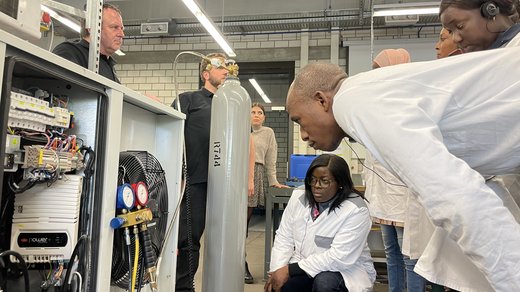
06/2023 Publication - VideoSérie de vidéos | Les avantages des réfrigérants naturels
Que sont les réfrigérants naturels et pourquoi est-il si important de les utiliser ? Quels sont les avantages et les difficultés liés à l'utilisation de réfrigérants naturels ?
Écoutez les techniciens en réfrigération et en climatisation du monde entier qui répondent à ces questions et expliquent les avantages des technologies Green Cooling.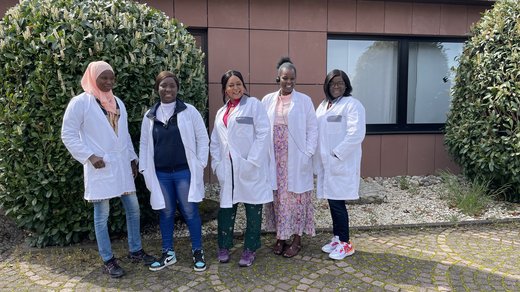
06/2023 Publication - VideoSérie de vidéos | Femmes dans la réfrigération
Voix de femmes de Cool Trainings 2022 - Des femmes du secteur des RAC s'expriment sur leurs problèmes et difficultés, mais aussi sur le plaisir de travailler dans l'industrie et sur les raisons pour lesquelles le renforcement de l'autonomie des femmes dans le secteur doit être encouragé.
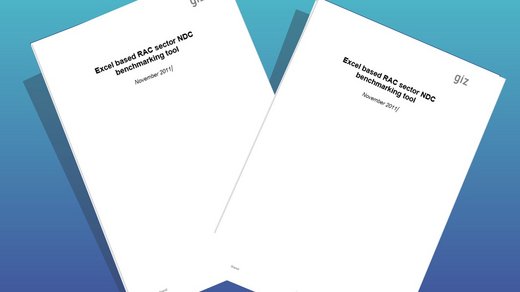
10/2022 PublicationExcel based RAC sector NDC benchmarking tool
The objective is to enable decision-makers to do a self-analysis of the cooling sector-related measures included in the current NDC of a country or future updated NDCs. It follows the same logic and structure as presented in the guideline.
The ambition level resulting from the selected policy instruments provides an indication of whether the measures are going in the right direction.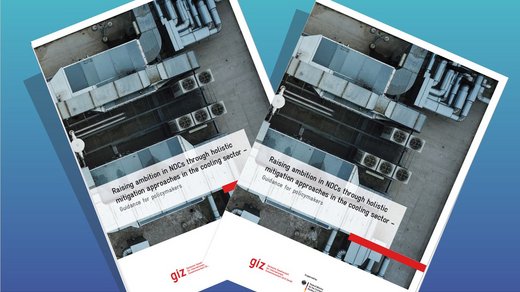
10/2022 Publication - Inventories & Cooling StrategiesRaising ambition in NDCs through holistic mitigation approaches in the cooling sector – Guidance for policymakers
Refrigeration and air conditioning (RAC) is vital for human well-being, for example, to prevent food loss and guarantee supply with medical care with functioning cold chains and alleviate heat stress through space cooling. Cooling sector specific mitigation targets and measures can significantly contribute to achieving a country’s overall climate targets and therefore, need to be considered when defining and updating Nationally Determined Contributions (NDCs).
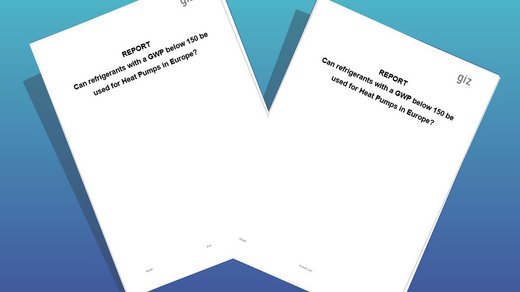
10/2022 Publication - Technical PublicationCan refrigerants with a GWP below 150 be used for Heat Pumps in Europe?
In the forthcoming report, the viability of applying alternative refrigerants with a GWP < 150 to domestic heat pumps (DHPs) with nominal heating capacities up to 50 kW will be considered. The assessment will reflect the proposed revision to the European F-gas regulation. DHPs currently use a variety of refrigerants, primarily R410A, but also R32, R407C, R404A, R417A, R454B, R454C, R452B, R448A, R449A, amongst others, all of which are medium or high GWP. A number of models already use R290, whilst other alternative refrigerants with GWP < 150 under consideration are R1270, R1234yf and R152a; all of which are flammable. These low GWP alternatives will be assessed, relative to R410A as baseline and R32 as leading medium GWP refrigerant.
10/2022 Publication - Technical PublicationCan refrigerants with a GWP below 150 be used for split air conditioners in Europe?
The viability of applying selected refrigerants with a GWP < 150 to reversible room air conditioning systems (RACS) with nominal cooling capacities below 12 kW is considered. The assessment reflects the proposed revision to the European F-gas regulation.
